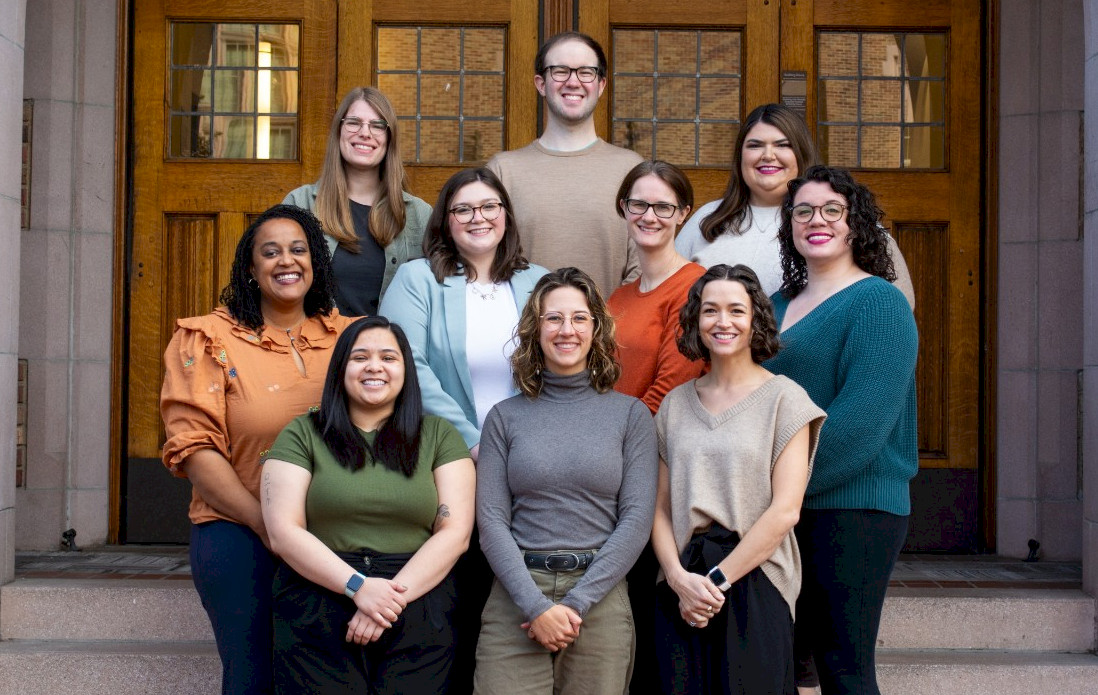View our mission statement and strategic priorities using the Sustainable Academic Business Plan. This is our framework to maintain excellence in program delivery, in light of the current drivers in our community. The plan outlines the short and long term that will sustain the work into the near future.
Our work is guided by the following methods:
- Intentionality - We use current assessment, research, and best practices to make decisions.
- Collaboration - We develop transparent and collaborative relationships with campus and community partners.
- Equity and Access - We commit to addressing systemic oppressions, challenging our own individual biases, and working toward transforming our culture, policies and practices to accelerate change.
First Year Programs is a part of Undergraduate Academic Affairs (UAA). In UAA our work should be inspiring, experimental, and visionary. We develop, assess, and evaluate programming and curriculum by answering the following questions:
- Is UAA doing the work we should be doing?
- How are we able to be truly imaginative with this work?
- Can we re-imagine the work in way to push the boundaries of the undergraduate student experience?
FYP Updates
Stay up to date on our programming and opportunities to engage. If you are not getting our emails, please contact fypadmin@uw.edu, and we will make sure to add you to the list.
The link below goes to a google folder. You will need to log into google using your UW email to access the information.
FYP Core Programs
Transitional Programming
-
Advising & Orientation (A&O): Advising & Orientation sessions provide new students with their introduction to the UW community. Every A&O session combines academic advising, course registration, and an introduction to campus resources. We offer many different session types that cater to the wide-ranging needs of our student body.
-
Family Orientation: Family Orientation is a series of presentations, workshops, and tours for parents and families of first-year students. Family Orientation is offered in conjunction with the Student Advising & Orientation (A&O) program.
- Dawg Daze: Each autumn, the UW campus begins the quarter with Dawg Daze, a week of welcome with more than 250 welcome events designed to help new and returning students connect with the campus, explore opportunities, and get involved with programs and services that relate to their interests.
Academic Year Engagement Programming
- Commuter and Transfer Commons: The Commuter and Transfer Commons helps students living at home, commuting to and or transferred to the UW, create a sense of identity within the larger university community. The CTC focuses on programs and outreach services for students who do not live on campus or in the University District.
- Transfer Seminars: Transfer seminars offer transfer students the opportunity to engage in an academic topic with a UW staff member. The seminar is reserved for new transfer undergraduates.
- First-Year Networks: First-Year Networks are groups of incoming students who share common interests or backgrounds. Through the First-Year Networks program, you will get access to a private online community of first-year students with shared backgrounds and/or interests.
- First-year Interest Groups (FIGs): For more than 30 years, First-year Interest Groups (FIGs) have helped students to seamlessly transition to life at the UW. FIGs allow first-year freshman and transfer students to enroll in the same schedule as 20-25 other new students. In addition to the same schedule, FIG students also participate in a seminar taught by a trained FIG Leader and designed to position new students to take full advantage of the UW.
- First-year Interest Groups (FIG) Clustering: We involve UW faculty and staff members in planning each year's FIG courses to create clusters of courses that will complement each other, and allow students to experience some of the university's most exciting course offerings in their first quarter.



